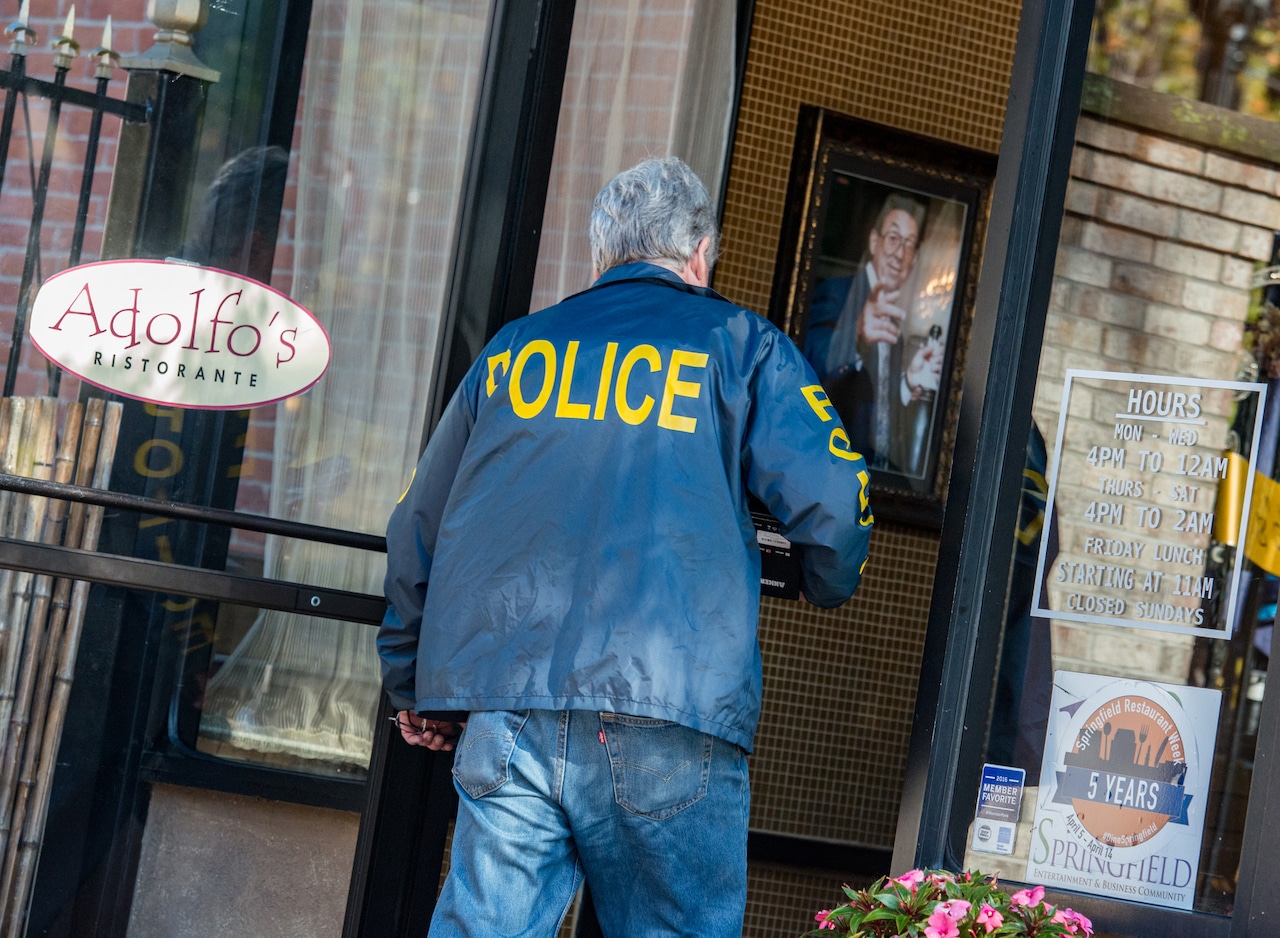## Holyoke’s Gaming Scene Hit Hard: Police Crack Down on Illegal Machines
The flashing lights and the clinking of coins – the allure of a quick win is undeniable. But in Holyoke, Massachusetts, that allure has come with a hefty dose of legal trouble. In a recent raid, state police descended upon several bars and stores, seizing illegal gaming machines and disrupting a thriving, and entirely unregulated, gambling scene.

What were these machines offering, and how did they slip through the cracks? Why did police choose to target them now? We delve into the details of this shocking bust, exploring the implications for Holyoke’s businesses and the broader landscape of legal gaming in the state.

Shared Businesses and Transactions: The Intertwining of Ventures and the Potential for Illicit Activity
The recent raids by federal agents and state police on Mardi Gras, a strip club owned by James Santaniello, and Adolfo’s Ristorante, owned by Victor Bruno, highlight a concerning trend in the entertainment industry: the intertwining of seemingly legitimate businesses with potentially illicit activities. Both Santaniello and Bruno have been subjects of intense law enforcement scrutiny for years, with allegations of organized crime involvement and financial impropriety swirling around them. The raids, focusing on suspected money laundering schemes, shed light on the complexities of these interwoven ventures and the potential vulnerabilities they create for exploitation.
Santaniello’s business empire encompasses a diverse portfolio of strip clubs, restaurants, poker machine outfits, and real estate holdings. Bruno, the son of slain mob boss Adolfo Bruno, also maintains a collection of businesses on Worthington Street, including Adolfo’s Ristorante, Venture Properties, and Art-e’-Pizza. These shared ventures, while appearing legitimate on the surface, can create opportunities for financial concealment and money laundering.
The commingling of funds between these businesses can obscure the true source and destination of money. For instance, profits from illegal gambling activities could be routed through seemingly legitimate businesses, making it difficult to trace the funds back to their origin.
Moreover, the close relationships between individuals involved in these ventures can facilitate the movement of illicit funds. In Santaniello’s case, his history of associating with organized crime figures suggests a potential for participation in money laundering operations.
The Second Set of Books: A Red Flag for Investigators
Undercover Agents: IRS Posing as Russian Buyers Seeking to Exploit the Alleged Scheme
The focus of the recent raids is purportedly on alleged Russian cash buyers to whom Santaniello and Bruno disclosed they had a “second set of books.” These buyers, according to sources familiar with the investigations, were undercover IRS agents.
The use of undercover agents in this case highlights the sophisticated methods employed by law enforcement to uncover money laundering schemes. By posing as potential buyers, the IRS agents were able to gain access to sensitive information about the purported financial dealings of Santaniello and Bruno.
Evidence of Financial Concealment: What the “Second Set of Books” Reveal about Potential Money Laundering
The existence of a “second set of books” is a major red flag for investigators. It suggests that Santaniello and Bruno were actively concealing financial transactions, potentially to hide illegal activities.
A second set of books could contain false or incomplete records of income and expenses, making it difficult to track the flow of money. It could also be used to create false invoices or other documents to support money laundering schemes.
Legal Ramifications: Potential Charges and Penalties for Financial Crimes
If investigators find evidence of money laundering, Santaniello and Bruno could face serious legal consequences. Money laundering is a federal crime that carries heavy penalties, including substantial fines and lengthy prison sentences.
The potential charges could include:
- Conspiracy to commit money laundering
- Money laundering
- Tax evasion
- Fraud
The penalties for these offenses vary depending on the severity of the crime and the amount of money involved. However, even a first-time offender could face significant prison time and fines.
Implications for the Entertainment Industry
Increased Scrutiny: How the Raid Could Impact Licensing and Regulations for Adult Entertainment Venues
The raids on Mardi Gras and Adolfo’s could lead to increased scrutiny of adult entertainment venues. Law enforcement agencies may be more likely to investigate these businesses for potential financial crimes, such as money laundering.
This increased scrutiny could result in stricter licensing requirements and regulations for adult entertainment venues.
Businesses may be required to provide more detailed financial information and undergo more frequent audits. There may also be limitations on the types of activities that are allowed in these venues.
Cybersecurity Concerns: The Potential Vulnerability of Online Gaming Platforms to Money Laundering Schemes
The raids highlight the growing vulnerability of online gaming platforms to money laundering schemes. The anonymity and ease of transactions that make these platforms attractive to players can also make them appealing to criminals.
Criminals can use online gaming platforms to disguise the origins of illicit funds. They may deposit money from illegal activities into their gaming accounts and then withdraw it as legitimate winnings.
This can make it difficult for law enforcement to trace the flow of money and to identify those involved in money laundering.
The Future of Gaming: Will This Raid Lead to Stricter Regulations and Increased Security Measures in the Industry?
The raids on Mardi Gras and Adolfo’s could prompt calls for stricter regulations and increased security measures in the gaming industry. Online gaming platforms may be required to implement more robust anti-money laundering (AML) programs, including Know Your Customer (KYC) checks and transaction monitoring.
Gaming regulators may also increase their scrutiny of online gaming operators, conducting more frequent audits and investigations. The industry may also see a greater emphasis on cybersecurity to protect against data breaches and other cyberattacks.
Conclusion
The recent raid in Holyoke, targeting establishments allegedly harboring illegal gaming machines, underscores a critical tension within the gaming landscape. As law enforcement cracks down on these unregulated machines, the discussion intensifies around the blurry line between legitimate gaming and illicit operations. While the article highlights the state police’s commitment to upholding gaming laws and protecting consumers, it also raises questions about the accessibility and affordability of legal gaming options in the state. The long-term implications of this raid remain to be seen. Will it deter future establishments from offering unauthorized gaming machines? Will it lead to increased scrutiny and enforcement across the state? Or will it simply drive these operations further underground, making them even more difficult to regulate? One thing is certain: the debate surrounding the legality and ethics of these machines will continue to evolve, forcing us to grapple with the complex interplay between personal entertainment, economic opportunity, and the rule of law. The future of gaming in Massachusetts hangs in the balance, and the choices made today will have lasting consequences for players and businesses alike.
